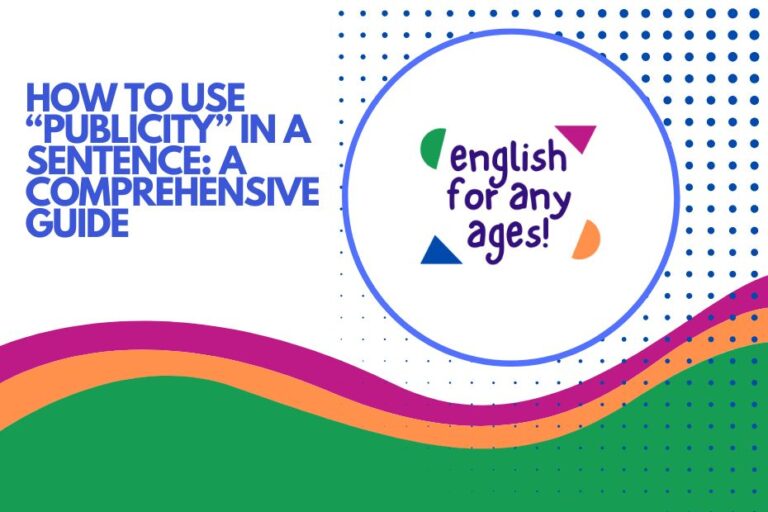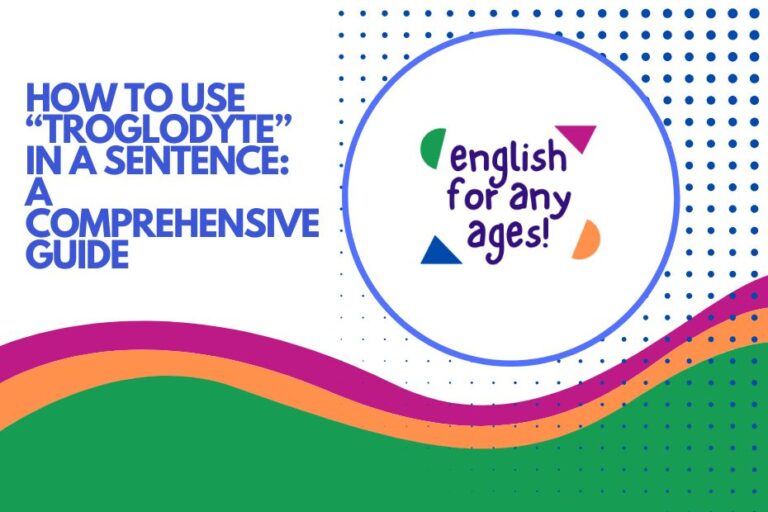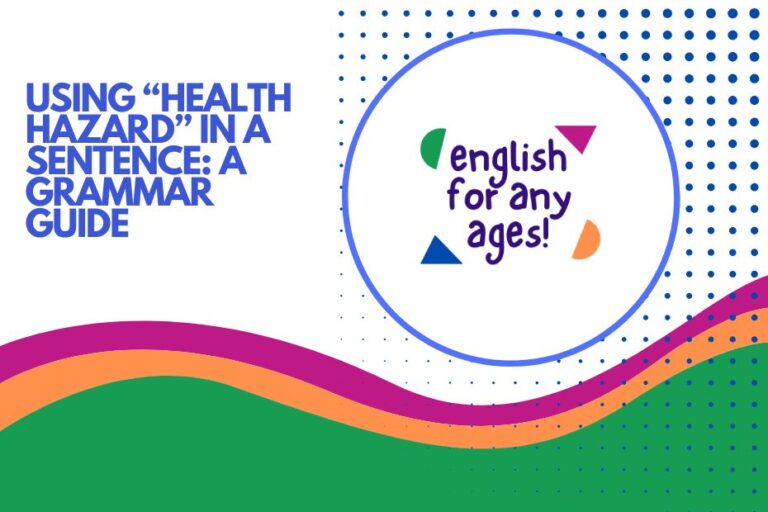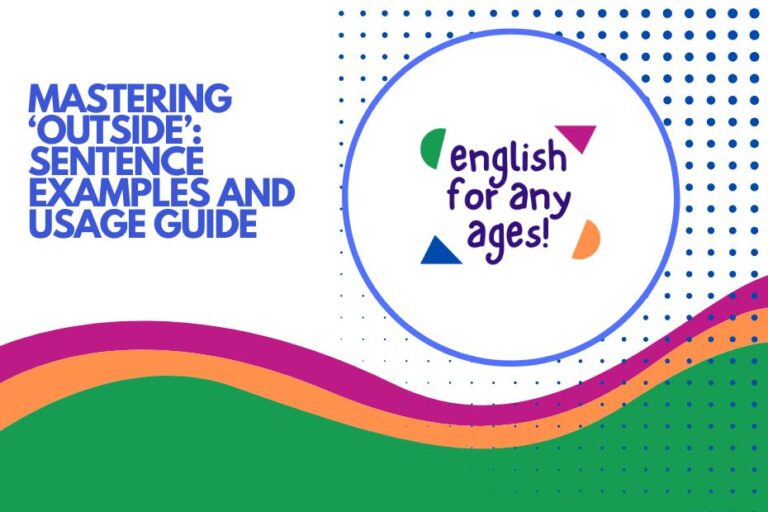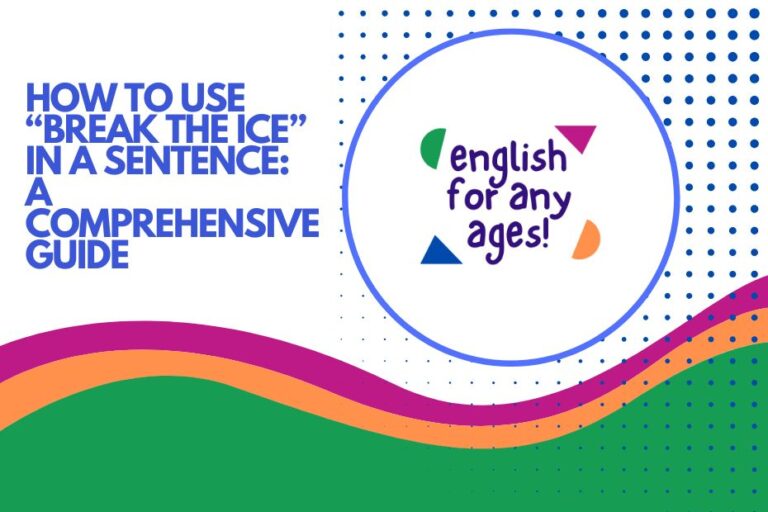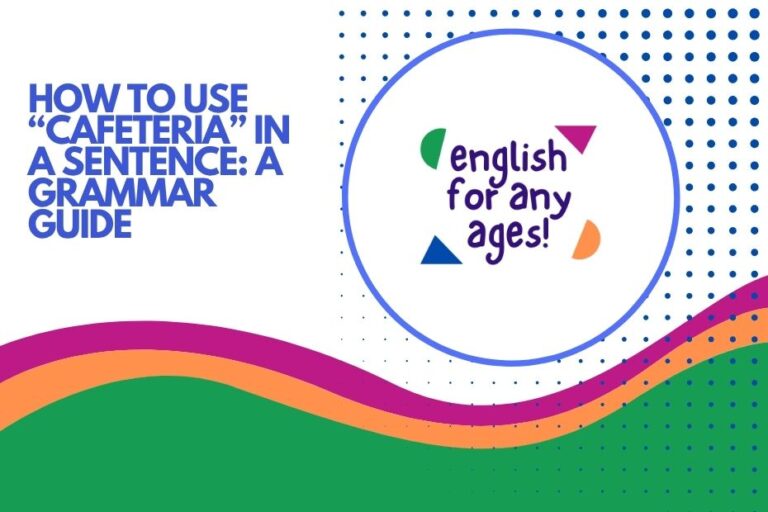Mastering “Without”: Sentence Examples and Usage Guide
The preposition “without” is a fundamental part of the English language, used to express the absence or lack of something. Understanding its various uses is crucial for constructing clear and accurate sentences.
This article provides a comprehensive guide to using “without,” covering its definition, structural usage, types, common mistakes, and advanced applications. Whether you’re a beginner or an advanced learner, this guide will help you master the nuances of “without” and improve your overall English proficiency.
Table of Contents
- Definition of “Without”
- Structural Breakdown
- Types and Categories of “Without” Usage
- Examples of “Without” in Sentences
- Usage Rules for “Without”
- Common Mistakes Using “Without”
- Practice Exercises
- Advanced Topics
- Frequently Asked Questions
- Conclusion
Definition of “Without”
“Without” is a preposition that primarily indicates the absence, lack, or exclusion of something. It signifies that something is not present or involved in a particular situation.
The word can also convey a condition or manner in which something is done. Essentially, “without” describes what is missing or not included.
Classification: Preposition
Function: To indicate absence, lack, exclusion, condition, or manner.
Contexts: Commonly used in everyday speech and writing, formal and informal contexts. Can be used to describe physical absence, emotional states, or conditional scenarios.
Structural Breakdown
The basic structure involving “without” is relatively straightforward. It typically precedes a noun, noun phrase, gerund, or clause to indicate what is absent or lacking.
Understanding this structure helps in constructing grammatically correct sentences.
Basic Structure: without + [noun/noun phrase/gerund/clause]
Examples:
- without help (noun)
- without a doubt (noun phrase)
- without knowing (gerund)
- without him realizing (clause)
The phrase introduced by “without” usually functions as an adverbial phrase, modifying the verb in the main clause. It provides additional information about how or under what conditions the action is performed.
Types and Categories of “Without” Usage
The preposition “without” can be used in various ways to convey different meanings. Understanding these different types will enhance your ability to use “without” effectively.
Expressing Absence or Lack
This is the most common usage of “without.” It indicates that something is missing or not present.
Expressing Condition
“Without” can also introduce a condition that, if not met, would lead to a particular outcome.
Expressing Manner
In some cases, “without” can describe the manner in which an action is performed, indicating the absence of a particular quality or characteristic.
Expressing Result
Less commonly, “without” can imply a result or consequence that occurs due to the absence of something.
Examples of “Without” in Sentences
This section provides extensive examples of “without” used in various contexts. Each subsection focuses on a specific type of usage, with multiple examples to illustrate the concept clearly.
Expressing Absence or Lack
Here, we examine sentences where “without” indicates the absence of something. The following table presents a variety of examples, illustrating how “without” can be used to express the lack of physical objects, abstract concepts, or specific qualities.
| No. | Sentence |
|---|---|
| 1 | She left the house without her keys. |
| 2 | He completed the project without any help. |
| 3 | They traveled to Europe without a plan. |
| 4 | The cake tastes delicious without frosting. |
| 5 | He spoke without thinking. |
| 6 | She walked away without saying goodbye. |
| 7 | The room felt empty without her presence. |
| 8 | He managed to succeed without formal education. |
| 9 | The flowers died without water. |
| 10 | She smiled without showing her teeth. |
| 11 | He ran without looking back. |
| 12 | They lived without electricity for a week. |
| 13 | She sang beautifully without any training. |
| 14 | He finished the race without stopping. |
| 15 | They built the house without using nails. |
| 16 | She painted the picture without using a brush. |
| 17 | He solved the problem without using a calculator. |
| 18 | They climbed the mountain without ropes. |
| 19 | She drove the car without a license (which is illegal!). |
| 20 | He ate the pizza without cheese. |
| 21 | She wrote the novel without an outline. |
| 22 | He accepted the challenge without hesitation. |
| 23 | They started the project without funding. |
| 24 | She answered the question without knowing the answer. |
| 25 | He left the meeting without saying a word. |
| 26 | They achieved their goals without compromising their values. |
| 27 | She played the piano without sheet music. |
| 28 | He fixed the computer without any tools. |
| 29 | They survived the storm without suffering any damage. |
| 30 | She completed the marathon without taking a break. |
Expressing Condition
In this context, “without” introduces a condition. The outcome described in the main clause is dependent on the absence of the element specified after “without.” The following table provides examples of this usage.
| No. | Sentence |
|---|---|
| 1 | Without your help, I wouldn’t have finished the project. |
| 2 | Without water, plants cannot survive. |
| 3 | Without practice, you won’t improve your skills. |
| 4 | Without a ticket, you can’t enter the concert. |
| 5 | Without sunlight, the flowers will wither. |
| 6 | Without air, we cannot breathe. |
| 7 | Without dedication, success is unlikely. |
| 8 | Without love, life feels empty. |
| 9 | Without trust, relationships fail. |
| 10 | Without communication, misunderstandings arise. |
| 11 | Without education, opportunities are limited. |
| 12 | Without effort, goals remain dreams. |
| 13 | Without innovation, progress stagnates. |
| 14 | Without proper planning, projects fail. |
| 15 | Without a strong foundation, the building will collapse. |
| 16 | Without a map, we will get lost. |
| 17 | Without a compass, navigating is difficult. |
| 18 | Without fuel, the car won’t run. |
| 19 | Without electricity, the lights won’t turn on. |
| 20 | Without internet, accessing information is challenging. |
| 21 | Without coffee, I can’t function properly in the morning. |
| 22 | Without exercise, our health suffers. |
| 23 | Without sleep, we become irritable. |
| 24 | Without proper nutrition, our bodies weaken. |
| 25 | Without teamwork, achieving success is harder. |
| 26 | Without careful consideration, decisions can be flawed. |
| 27 | Without empathy, understanding others is difficult. |
| 28 | Without clear instructions, tasks are confusing. |
| 29 | Without regular maintenance, equipment breaks down. |
| 30 | Without a backup plan, you risk failure. |
Expressing Manner
“Without” can also describe how something is done, indicating the absence of a particular quality or characteristic in the action. The sentences in the following table illustrate this usage.
| No. | Sentence |
|---|---|
| 1 | She sang the song without emotion. |
| 2 | He spoke without hesitation. |
| 3 | She danced without grace. |
| 4 | He acted without thinking. |
| 5 | She moved without making a sound. |
| 6 | He left without saying goodbye. |
| 7 | She smiled without showing her teeth. |
| 8 | He ran without looking back. |
| 9 | She accepted the offer without question. |
| 10 | He approached the situation without fear. |
| 11 | She handled the crisis without panic. |
| 12 | He expressed his opinion without reservation. |
| 13 | She completed the task without complaint. |
| 14 | He faced the challenge without flinching. |
| 15 | She listened to the story without interruption. |
| 16 | He observed the scene without comment. |
| 17 | She proceeded without further delay. |
| 18 | He continued without losing hope. |
| 19 | She worked without complaining once. |
| 20 | He persevered without giving up. |
| 21 | She practiced without stopping for hours. |
| 22 | He executed the plan without fault. |
| 23 | She spoke without raising her voice. |
| 24 | He moved the furniture without scratching the floor. |
| 25 | She prepared the meal without burning anything. |
| 26 | He completed the marathon without collapsing. |
| 27 | She drove the car without getting lost. |
| 28 | He navigated the maze without making a wrong turn. |
| 29 | She solved the riddle without any hints. |
| 30 | He answered the question without consulting his notes. |
Expressing Result
Although less common, “without” can imply a result or consequence that occurs due to the absence of something. Here are some examples:
| No. | Sentence |
|---|---|
| 1 | Without sunscreen, you’ll get sunburned. |
| 2 | Without a helmet, you risk serious injury. |
| 3 | Without proper insulation, the pipes will freeze. |
| 4 | Without regular oil changes, the engine will fail. |
| 5 | Without brushing your teeth, you’ll get cavities. |
| 6 | Without watering the plants, they will die. |
| 7 | Without studying, you will fail the exam. |
| 8 | Without a valid passport, you cannot travel internationally. |
| 9 | Without a reservation, you may not get a table at the restaurant. |
| 10 | Without proper ventilation, mold will grow. |
| 11 | Without saving money, you won’t achieve financial security. |
| 12 | Without following the instructions, you’ll make mistakes. |
| 13 | Without a good night’s sleep, you’ll feel tired all day. |
| 14 | Without taking precautions, you risk infection. |
| 15 | Without a warranty, you’re responsible for repair costs. |
| 16 | Without a seatbelt, you are more likely to be injured in an accident. |
| 17 | Without a strong password, your account is vulnerable to hacking. |
| 18 | Without backing up your data, you risk losing important files. |
| 19 | Without regular exercise, you increase your risk of heart disease. |
| 20 | Without a fire extinguisher, a small fire can quickly become dangerous. |
Usage Rules for “Without”
There are several rules to keep in mind when using “without” to ensure grammatical accuracy and clarity.
- Placement: “Without” typically precedes the noun, noun phrase, gerund, or clause it modifies.
- Gerunds: When followed by a verb, use the gerund form (-ing form). Example: “He left without saying goodbye.”
- Clarity: Ensure that the meaning is clear and unambiguous. Avoid using “without” in overly complex sentences where the meaning could be misinterpreted.
- Formal vs. Informal: “Without” is appropriate for both formal and informal contexts.
Common Mistakes Using “Without”
Even experienced English speakers sometimes make mistakes when using “without.” Here are some common errors and how to avoid them.
| Incorrect | Correct | Explanation |
|---|---|---|
| He left without to say goodbye. | He left without saying goodbye. | After “without,” use the gerund form of the verb. |
| Without you to help me, I’d fail. | Without your help, I’d fail. | Use a noun or noun phrase after “without” to express the condition. Alternatively, “If you didn’t help me, I’d fail” is also correct. |
| She did it without no effort. | She did it without any effort. | Avoid double negatives. “Without” already implies a negative, so “no” is redundant. |
| Without of water, the plants died. | Without water, the plants died. | The preposition “of” is unnecessary after “without.” |
Practice Exercises
Test your understanding of “without” with these practice exercises. Fill in the blanks with appropriate phrases using “without.”
Exercise 1: Fill in the Blanks
| No. | Sentence | Answer |
|---|---|---|
| 1 | She completed the race _______ a break. | without taking |
| 2 | _______ your support, I couldn’t have done it. | Without |
| 3 | He left the party _______ saying goodbye. | without |
| 4 | They traveled to Europe _______ a detailed plan. | without |
| 5 | She sang the song _______ any emotion. | without |
| 6 | The plants died _______ water. | without |
| 7 | He built the house _______ using nails. | without |
| 8 | _______ practice, you won’t improve. | Without |
| 9 | She smiled _______ showing her teeth. | without |
| 10 | He ran _______ looking back. | without |
Exercise 2: Correct the Mistakes
Identify and correct the mistakes in the following sentences.
| No. | Sentence | Corrected Sentence |
|---|---|---|
| 1 | He left without to say anything. | He left without saying anything. |
| 2 | Without of your help, I would have failed. | Without your help, I would have failed. |
| 3 | She did it without no effort. | She did it without any effort. |
| 4 | Without you to be there, I was nervous. | Without you being there, I was nervous. (Less Common but grammatically possible) / Without your presence, I was nervous. |
| 5 | They arrived without to have a reservation. | They arrived without having a reservation. |
| 6 | Without no money, they couldn’t buy food. | Without any money, they couldn’t buy food. |
| 7 | She completed the task without to complain. | She completed the task without complaining. |
| 8 | Without of sunlight, the plants died. | Without sunlight, the plants died. |
| 9 | He fixed the car without to use any tools. | He fixed the car without using any tools. |
| 10 | Without you to guide me, I am lost. | Without your guidance, I am lost. |
Exercise 3: Sentence Completion
Complete the following sentences using “without” in a meaningful way.
| No. | Beginning of Sentence | Completed Sentence |
|---|---|---|
| 1 | Without proper planning,… | Without proper planning, the project is likely to fail. |
| 2 | She finished the painting,… | She finished the painting without using any reference photos. |
| 3 | Without a map,… | Without a map, we’ll never find our way back. |
| 4 | He accepted the job offer,… | He accepted the job offer without hesitation. |
| 5 | Without your help,… | Without your help, I wouldn’t have been able to move all of those boxes. |
| 6 | They climbed the mountain,… | They climbed the mountain without any professional equipment. |
| 7 | Without clear communication,… | Without clear communication, misunderstandings are bound to occur. |
| 8 | She walked into the room,… | She walked into the room without knocking. |
| 9 | He solved the puzzle,… | He solved the puzzle without any clues. |
| 10 | Without a second thought,… | Without a second thought, she jumped into the water to save the drowning child. |
Advanced Topics
For advanced learners, “without” can be explored in more complex sentence structures and idiomatic expressions.
- “Without so much as”: This idiom emphasizes a complete lack of something, often used to express surprise or disapproval. Example: He left without so much as a goodbye.
- “Do without”: This phrasal verb means to manage or survive in the absence of something. Example: We’ll have to do without a vacation this year.
- Complex Conditional Sentences: “Without” can be used in more intricate conditional structures to express hypothetical scenarios. Example: Without advanced technology, space exploration would be impossible.
Frequently Asked Questions
Here are some common questions about using “without.”
- Can “without” be used at the beginning of a sentence?
Yes, “without” can be used at the beginning of a sentence to introduce a condition or to emphasize the absence of something. For example, “Without your help, I wouldn’t have succeeded.”
- Is it ever correct to say “without no”?
No, “without no” is generally incorrect due to the double negative. It’s better to use “without any” or simply rephrase the sentence to avoid the double negative. For example, instead of “He did it without no effort,” say “He did it without any effort.”
- What is the difference between “without” and “with no”?
While both express the absence of something, “without” is generally more concise and commonly used. “With no” can sometimes add emphasis. For example, “She left without her keys” and “She left with no keys” are both correct, but the latter might emphasize the fact that she had absolutely no keys.
- Can “without” be followed by a clause?
Yes, “without” can be followed by a clause, especially when using a gerund or a participle phrase that functions as a clause. For example, “He finished the project without anyone noticing.”
- How do I avoid common mistakes when using “without”?
Pay attention to the grammatical structure following “without.” Ensure you use the correct form of the verb (gerund) and avoid double negatives. Practice writing sentences using “without” in various contexts to improve your accuracy.
- Is “without” formal or informal?
“Without” is appropriate for both formal and informal contexts. Its usage is widespread and versatile, making it suitable for various types of writing and speech.
- Can “without” be used with uncountable nouns?
Yes, “without” can be used with uncountable nouns. For example, “She lived without electricity” or “He spoke without emotion.”
- What are some alternative ways to express the same meaning as “without”?
Alternative ways to express the same meaning as “without” include using phrases like “lacking,” “devoid of,” “absent of,” or restructuring the sentence to use a negative form. For example, instead of “He left without his wallet,” you could say “He didn’t take his wallet with him.”
Conclusion
Mastering the preposition “without” is essential for clear and effective communication in English. This comprehensive guide has covered its definition, structural usage, types, common mistakes, and advanced applications, providing you with a solid foundation for using “without” correctly.
By understanding the nuances of “without,” you can enhance your writing and speaking skills, ensuring that your message is conveyed accurately and effectively.
Remember to practice using “without” in various contexts to reinforce your understanding. Pay attention to the grammatical structure and avoid common errors.
With consistent practice, you’ll become more confident and proficient in using “without” in your everyday communication. Keep practicing, and you’ll soon master this essential preposition.

